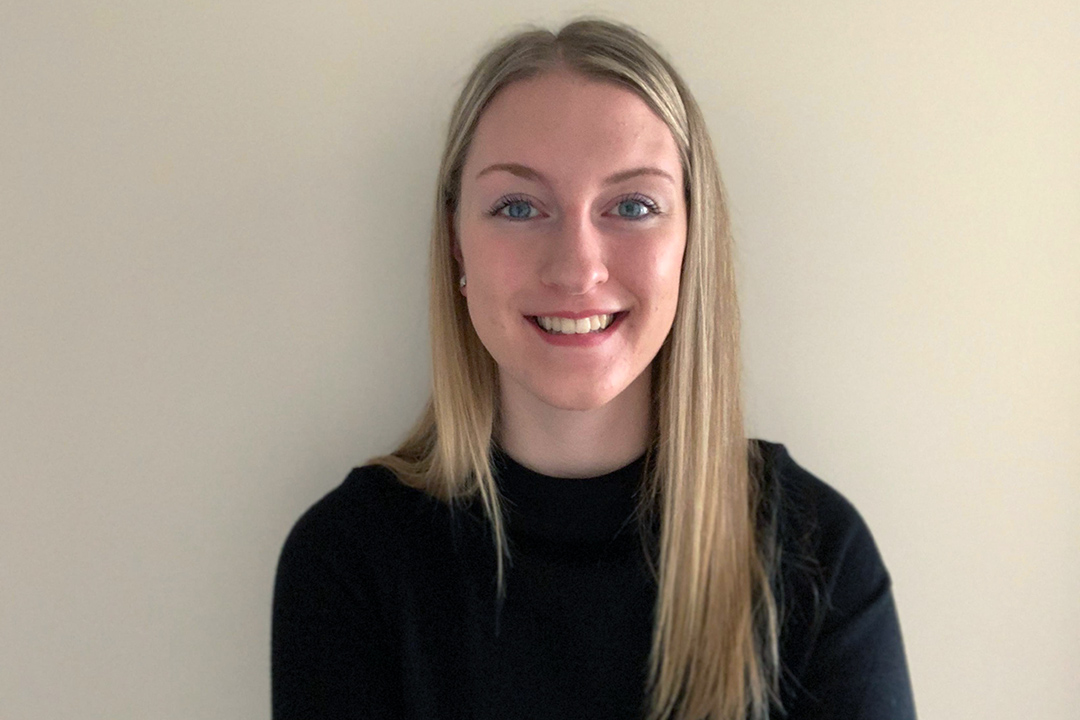
USask unites: How I helped with COVID contact-tracing
First-year University of Saskatchewan (USask) medical student Morgan Schatz was one of nearly 50 medical students who assisted the Saskatchewan Health Authority (SHA) with contact tracing efforts in Dec. 2020.
By Morgan SchatzThe following is a USask student volunteer's personal experience being one of several medical students who helped with the backlog of contact tracing over the holiday break in December. Read more on this work.
My name is Morgan, and I am a first year-medical student at the University of Saskatchewan. I joined the Saskatchewan Health Authority's (SHA) pandemic supplemental work force, alongside approximately 50 of my classmates, in early December 2020 for the duration of our Christmas break.
The invitation for medical students to get involved with contact tracing came after months of seeing my friends, family members, and mentors work on the frontlines.
Even though I was prepping for my last two finals, and getting ready to take a break after my first four months of medical school, I knew it was the right decision for me to get involved.
Our task seemed quite daunting at first. We were responsible to make phone calls to inform clients of their negative COVID test results, and to provide further information about what the results meant.
When we first started, there were quite a large number of calls to make, and many people had been waiting more than a few days for us to call. It was not unusual to make 150-200 calls in one day.
However, within 10 days of the addition of students from the College of Medicine, along with others who joined the team during December, the SHA caught up on the outstanding calls and reduced the turnaround time between the posting of negative test results and the calls to inform the clients.
This one month work term was a powerful testament to how much a team can accomplish, especially in the face of something so daunting as a pandemic. Time and time again, I am inspired by the willingness of my classmates to rise to any challenge, whether it be learning the brachial plexus, or spending their Christmas break serving the residents of Saskatchewan. Together, one call at a time turns into thousands of calls a day.
The pandemic has and will continue to affect us all. Having spoken to more than 1,000 Saskatchewan residents, and having heard their stories and concerns, I know we are all in this together.
After having this opportunity to be involved as part of the supplemental work force, I am looking forward to learning more about Public Health this semester, which is an integral part of our Medicine and Society II curriculum.
I am thankful to be able to continue with my medical education despite all the challenges the pandemic has presented to the College of Medicine. It is special to me that I am able to learn medicine in the province I grew up in, and I look forward to continuing to serve the communities of Saskatchewan upon the completion of my studies.
Share your stories with us: We are collecting the stories of resilience and good spirit from our USask community. Please send story ideas and photos to news@usask.ca.
As a community it is critical that we support each other and remain respectful during what is a difficult time for all of us. Please follow all guidelines and take all precautions to prevent the further spread of COVID-19 in our community.
How you can help our students during the COVID-19 pandemic: https://alumni.usask.ca/news/2020/covid-19-how-you-can-help-our-students.php
For the latest developments and information about the University of Saskatchewan's response to COVID-19, please go to www.usask.ca/updates.
The University of Saskatchewan is undertaking critical research and contributing to global efforts to combat COVID-19. The University of Saskatchewan's Vaccine and Infectious Disease Organization (VIDO-InterVac) is a world leader in developing vaccines and technologies to combat infectious diseases. Your support of the COVID-19 Research Fund supports the increased efforts of researchers at the University of Saskatchewan to develop vaccines and treatments for COVID-19. Donate now.

